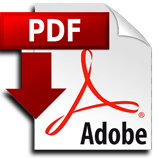Digitalization Era: How Is The Future Of Accountants?
Abstract
Keywords
Full Text:
PDFReferences
Adrianto, Z. (2020). Pengaruh Robotic Process Automation Terhadap Akuntansi. Jurnal Ekonomi Dan Bisnis Terapan, 2(16), 40–53. https://doi.org/10.20869/auditf/2020/160/024
Cahyadi, I. F. (2019). Peranan Sistem Informasi Akuntansi dan Tantangan Profesi Akuntan di Era Revolusi Industri 4.0 (Sebuah Studi Fenomenologi). AKTSAR: Jurnal Akuntansi Syariah, 2(1), 69. https://doi.org/10.21043/aktsar.v2i1.5497
Chukwuani, V. N., & Egiyi, M. A. (2020). Automation of Accounting Processes: Impact of Artificial Intelligence. International Journal of Research and Innovation in Social Science, IV(VIII), 444–449.
Deguchi, A., Hirai, C., Matsuoka, H., Nakano, T., Oshima, K., Tai, M., & Tani, S. (2020). What is society 5.0. Society, 5, 1-23.
Deniswara, K., Handoko, B. L., & Mulyawan, A. N. (2020). Big Data Analytics: Literature Study on How Big Data Works Towards Accountant Millennial Generation. International Journal of Management, 11(5), 376–389. https://doi.org/10.34218/IJM.11.5.2020.037
Elaine, R. (2000). Overview of AI And Its Application Area. Retrieved from http://members.90n.at/frankstein/frankeinstein-novelhtm
Frey, C. B. M. A. O. (2013). The Future of Employment: How Susceptible Are Jobs to Computerisation? Technological Forecasting and Social Change, 114, 254-280., 457–469. http://enliza.es/SECCIONES_1/1_EL FUTURO DEL TRABAJO/RECURSOS/The_Future_of_Employment_OMS_Working_Paper.pdf
Friday, I., & Japhet, I. (2020). Information Technology And The Accountant Today: What Has Really Changed? Journal of Accounting and Taxation, 12(1), 48–60. https://doi.org/10.5897/jat2019.0358
Groșanu, A., Fülöp, M.-T., Cordoș, G.-S., & Raita, G. (2021). Challenges and Trends for The Incorporation of Big Data in the Accounting Profession: From the Traditional Approach to The Future Professional Accountant. CECCAR Business Review, 1(12), 64–72. https://doi.org/10.37945/cbr.2020.12.08
Gulin, D., Hladika, M., & Valenta, I. (2019). Digitalization and the Challenges for The Accounting Profession. SSRN Electronic Journal, September, 428–437. https://doi.org/10.2139/ssrn.3492237
Hakiki, M. F., Islam, U., Sunan, N., & Yogyakarta, K. (2020). Digitalisasi Industri 4.0 dan Eksistensi Profesi Akuntan Syariah Sebuah Pandangan Positif SYARIAH : SEBUAH PANDANGAN POSITIF Disusun Oleh : Muhamad Fuji Hakiki. October.
Hoffman, C. (2017). Accounting and Auditing in the Digital Age. URL: Http://Xbrlsite. Azurewebsites, 1–14.
Jaslove, C. (2017). The Rise of Artificial Intelligence: An Analysis on The Future of Accountancy. University at Albany, State University of New York, April, 1–20. https://doi.org/10.2308/jeta-50433
Laney, D. (2012). Deja VVVu: Others Claiming Gartner’s construct for big data.
Laurensia, F. (2019). Dampak Teknologi Terhadap Profesi Akuntan Publik Di Masa Depan. Jurnal Ilmiah Mahasiswa Universitas Surabaya, 8(1), 11–21.
Malau, M. (2021). Analysis of the Accounting Learning Digital Disruptive in Industrial Revolution 4.0 and Society 5.0. 560(Acbleti 2020), 276–281.
Parcells, S. (2016). The Power of Finance Automation. Strategic Finance, 98 (6), 40. https://doi.org/10.1111/j.1540-6261.1984.tb03646.x
Poston, J. (2014). Can Software Really Replace Accountants. Accounting Web. Com.
Ramardhani, F. P. (2014). Robotic Process Automation : Peran dan Tantangan Akuntan Indonesia di Masa Depan. Jurnal Ilmiah Mahasiswa FEB. https://jimfeb.ub.ac.id/index.php/jimfeb/article/view/4982
Rini, Y. T. (2019). Mengurai Peta Jalan Akuntansi Era Industri 4.0. Referensi : Jurnal Ilmu Manajemen Dan Akuntansi, 7(1), 58. https://doi.org/10.33366/ref.v7i1.1339
Rosmida, R. (2019). Transformasi Peran Akuntan dalam Era Revolusi Industri 4.0 dan Tantangan Era Society 5.0. Inovbiz: Jurnal Inovasi Bisnis, 7(2), 206-212., 7, 206–212.
Singh, S., Singh, S., Kour, M., & Manhas, S. (2010). Voice Recognition In Automobiles. International Journal of Computer Applications, 6(6), 7–11. https://doi.org/10.5120/1084-1414
Subur, L. (2019). Accounting Talk Tansformasi Akuntansi pada Era Digital, https://www. kompasiana.com/lizazu/5c2c296c12ae940f8754b280/akuntansi-di-era-revolusi-industri-4-0.
Stancheva-Todorova, E. P. (2019). The Knowledge and Skills Profile of Accountant 4.0. Horizons, 79–97. https://doi.org/10.20544/HORIZONS.A.25.2.20.P05
Stancheva, E. (2018). How Artificial Intelligence is Challenging Accounting Profession. Journal of International Scientific Publications, 12, 126–141. https://doi.org/10.1097/01.NUMA.0000581404.86147.ac
Tikurante, R. U., Pasoloran, O., & Sabandar, S. Y. (2020). Quo Vadis Akuntan Dalam Era Revolusi Industri 4.0. Paulus Journal of Accounting, 2(1), 17–30. https://doi.org/10.34207/pja.v2i1.91
Zheng, L, L. Z. &. (2018). The Impact of Artificial Intelligence on Accounting. 4th International Conference on Social Science and Higher Education, 813–816. https://doi.org/10.1007/978-3-030-57831-2_49
DOI: http://dx.doi.org/10.30742/equilibrium.v18i1.1972
Refbacks
- There are currently no refbacks.
Copyright (c) 2022 Equilibrium: Jurnal Ekonomi-Manajemen-Akuntansi
Indexed By:
Equilibrium by http://journal.uwks.ac.id/index.php/equilibrium is licensed under a Creative Commons Attribution-ShareAlike 4.0 International License.
Â
Â
Â
Â
Â
Â
Office: EQUILIBRIUM
Faculty of Economics and Business Universitas Wijaya Kusuma Surabaya
Dukuh Kupang XXV No. 54 Surabaya, Indonesia 60225Â
Phone: +62315613231Â Â
email: equilibrium@uwks.ac.id















